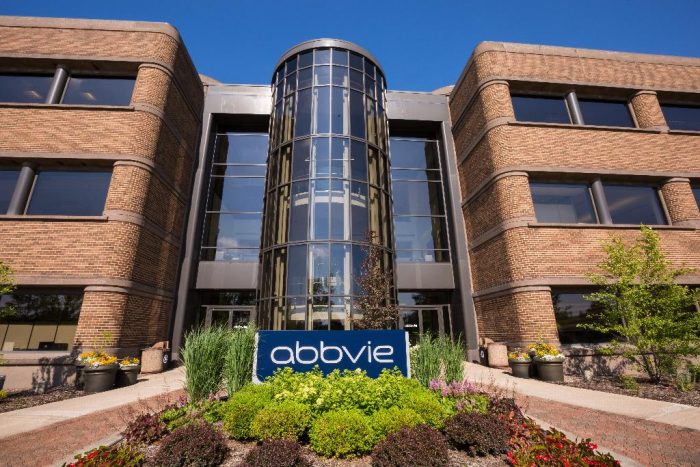
Antibodies that bind to two targets are an established way of treating the blood cancer multiple myeloma. Aiming to top those medicines, AbbVie has secured rights to an early-clinical drug that works by binding to three targets.
The drug, code-named ISB 2001, comes from IGI Therapeutics, a subsidiary of Ichnos Glenmark Innovation. AbbVie said Thursday it is paying $700 million up front for rights to this multi-specific T cell engager in North America, Europe, Japan, and Greater China.
A T cell engager is a type of antibody drug that works by binding to a target on an immune cell and another target on a cancer cell, bringing the two together so the immune cell can kill the cancer tell. IGI adds a third target to this approach as a way to overcome drug resistance. ISB 2001 is a trispecific T cell engager engineered to bind to CD3 on T cells, and to BCMA and CD38 on multiple myeloma cells. Binding to two targets on multiple myeloma cells enhances binding strength to the cancer cell, even when the target protein is expressed at low levels. It’s also intended to reduce off-target adverse effects from the therapy.
During the annual meeting of the American Society of Clinical Oncology last month, IGI presented data from a Phase 1 test of ISB 2001 in heavily pretreated multiple myeloma patients. The company reported that results from 35 patients showed the drug led to a sustained overall response rate of 79% and a high complete/stringent complete response rate of 30%. The company said ISB 2001’s safety profile was favorable; cases of cytokine release syndrome were mild and the one case neurotoxicity that was reported was classified as Grade 1.
The trispecific approach could offer an edge over currently available bispecific drugs for multiple myeloma. Johnson & Johnson’s stable of multiple myeloma products includes Tecvayli, a bispecific drug that binds to CD3 on T cells and BCMA on cancer cells. Meanwhile, Pfizer’s Elrexfio binds to CD38 and BCMA. The newest bispecific for multiple myeloma is Regeneron Pharmaceuticals’ Lynozyfic, a CD3- and BCMA-targeting bispecific drug awarded FDA approval last week.
“Multispecifics including trispecific antibodies represent a new frontier in immuno-oncology with the potential to deliver deeper, more durable responses by engaging multiple targets simultaneously,” AbbVie’s Roopal Thakkar, executive vice president, research and development and chief scientific officer, said in a prepared statement.
[Updated to add the following two paragraphs with analyst comments.] In a note sent to investors Thursday evening, Leerink Partners analyst David Risinger said J&J is close to completing a Phase 3 testing combining its monoclonal antibody Darzalex with the bispecific drug Tecvayli in multiple myeloma patients who have received one to three prior lines of therapy. But he added that a trispecific drug may offer superior efficacy and safety compared to combinations of two drugs. At the ASCO meeting and the European Hematology Association Congress, J&J presented preliminary Phase 1 data for JNJ-5322, a trispecific antibody targeting BCMA, GPRC5D, and CD3. Risinger noted results showed efficacy comparable to CAR T-therapies. Furthermore, this drug showed a 100% overall response rate and 70% complete response.
“JNJ-5322’s safety profile also appeared more favorable than the combination of Tecvayli and Talvey, particularly in terms of [cytokine release syndrome] rates,” Risinger said. “We look forward to ISB 2001 [Phase 1] data and future development updates.”
Depending on the progress of ISB 2001 under AbbVie, IGI could receive up to $1.225 billion in milestone payments, plus royalties from sales of an approved drug. The IGI drug represents the second multi-specific deal for AbbVie this year. In January, AbbVie signed an option-to-license agreement for SIM0500, a trispecific antibody from Simcere Zaiming, a subsidiary of Simcere Pharmaceutical Group. SIM0500 is engineered to bind to CD3 on T cells and GPRC5D and BCMA on multiple myeloma cells. That approach could make it a competitor to Talvey, a J&J bispecific antibody that binds to CD3 and GPRC5D.
A Phase 1 test in the U.S. and China is assessing the Simcere drug in patients with relapsed or refractory multiple myeloma. AbbVie’s upfront payment to Simcere was undisclosed. Option fees and milestone payments could bring the payout to more than $1 billion.
Photo by AbbVie






